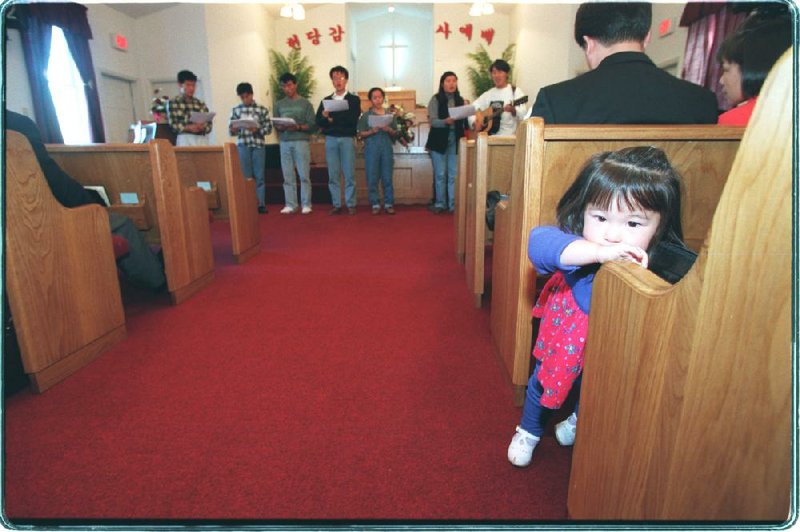LITTLE ROCK — As the Asian-American population grows, religions with their roots in Asia are also growing.
Buddhists and Hindus, when counted together, now make up 2 percent of the U.S. population, about the same as Jews, according to the survey conducted by the Pew Research Center’s Forum on Religion & Public Life.
The two groups are also growing in Arkansas, according to a separate report issued earlier this year by the Association of Statisticians of American Religious Bodies. Their report, titled the “2010 U.S. Religious Census: Religious Congregations and Membership Study,” shows that the state is home to more than 2,500 Hindus and about 2,000 Buddhists, both larger than the roughly 1,600-strong Jewish community. Muslims number about 3,700.
The Pew survey, “Asian Americans: A Mosaic of Faiths,” reveals a wide diversity of religious belief and practice among this largely foreign-born group. The largest percentage of Asian Americans — 42 percent — claim Christianity as their faith, while the second largest, 26 percent, are unaffiliated with any religious tradition. Fourteen percent are Buddhist, followed by 10 percent Hindu, 4 percent Muslim and 1 percent Sikh. The rest follow other faith traditions. The survey of 3,511 Asian-American adults has a margin of error of plus or minus 2.4 percent. Not only do Asian Americans have a wide variety of religious beliefs, their level of participation and religiosity also varies greatly. Cary Funk, lead author of the report, said the survey reveals a “rich portrait of religion among Asian Americans,” a group that is much more religiously diverse than the general U.S. population. “When it comes to religion, Asian Americans are really a study in contrasts, encompassing groups that run the gamut from highly religious to highly secular,” Funk said.
The report shows that Asian Americans are less likely than the general population to believe in God, to pray daily or to attend weekly worship services. But scholars providing insight to the survey said these findings may not be a good indicator of religiosity when compared to the largely Christian population in America. Buddhists and Hindus, for example, have different ways of practicing their faith that can’t be compared as “apples to apples” to Christians.
“One of the most important things to keep in mind regarding Hindus is the idea that there are different ways to consider, ‘What does it mean to be religious?’” said Khyati Joshi, an expert on religious pluralism in America and an associate professor of education at Fairleigh Dickinson University in New Jersey.
Going to temple for personal devotion time, she said, isn’t the same as a worship service. Many Hindus have shrines in their homes and may not equate time spent there with “worship attendance” in a survey. When asked about weekly attendance at services, only 19 percent of Hindus say they do so, but 78 percent have shrines in their homes.
Buddhism is a nontheistic religion, so questions about belief in God also aren’t necessarily illuminating. But when asked whether they believe in “ancestral spirits,” 67 percent of Buddhists said yes.
Asian-American Christians are hard to categorize.
The percentage of Asian-American Christians who say religion is very important in their lives is slightly lower compared with all U.S. Christians — 64 percent to 70 percent. But a higher percentage of Asian-American Christians attend worship regularly. Sixty-one percent of Asian-American Christians say they attend worship services weekly or more, compared to 45 percent of all U.S. Christians.
The report also highlights differences among the six largest subgroups by country of origin. They include Chinese, Filipino, Indian, Vietnamese, Korean and Japanese Americans. These six groups make up 83 percent of all Asian Americans, and they have widespread differences in religious traditions and affiliations.
For example, even though 42 percent are Christian, the report shows there are country-specific preferences. For example, a majority of Korean Americans are Protestant, while the majority of Filipino Americans are Catholic. About half of Indian Americans are Hindu, while half of Chinese Americans claim no religious affiliation.
The survey also includes information on social and political views, education, income and socioeconomic status.
The full report is available online at pewforum.org.
Religion, Pages 12 on 07/28/2012
